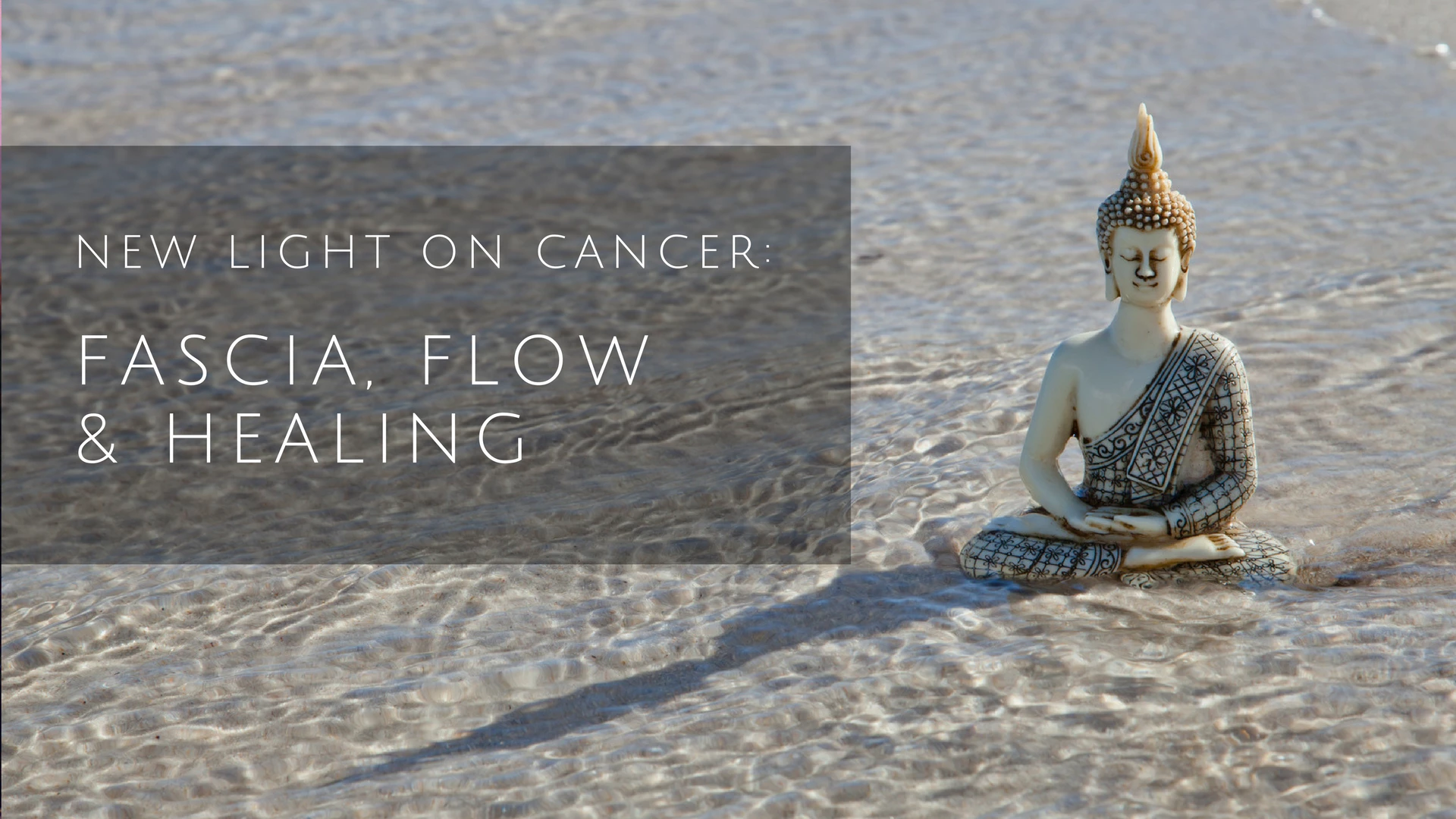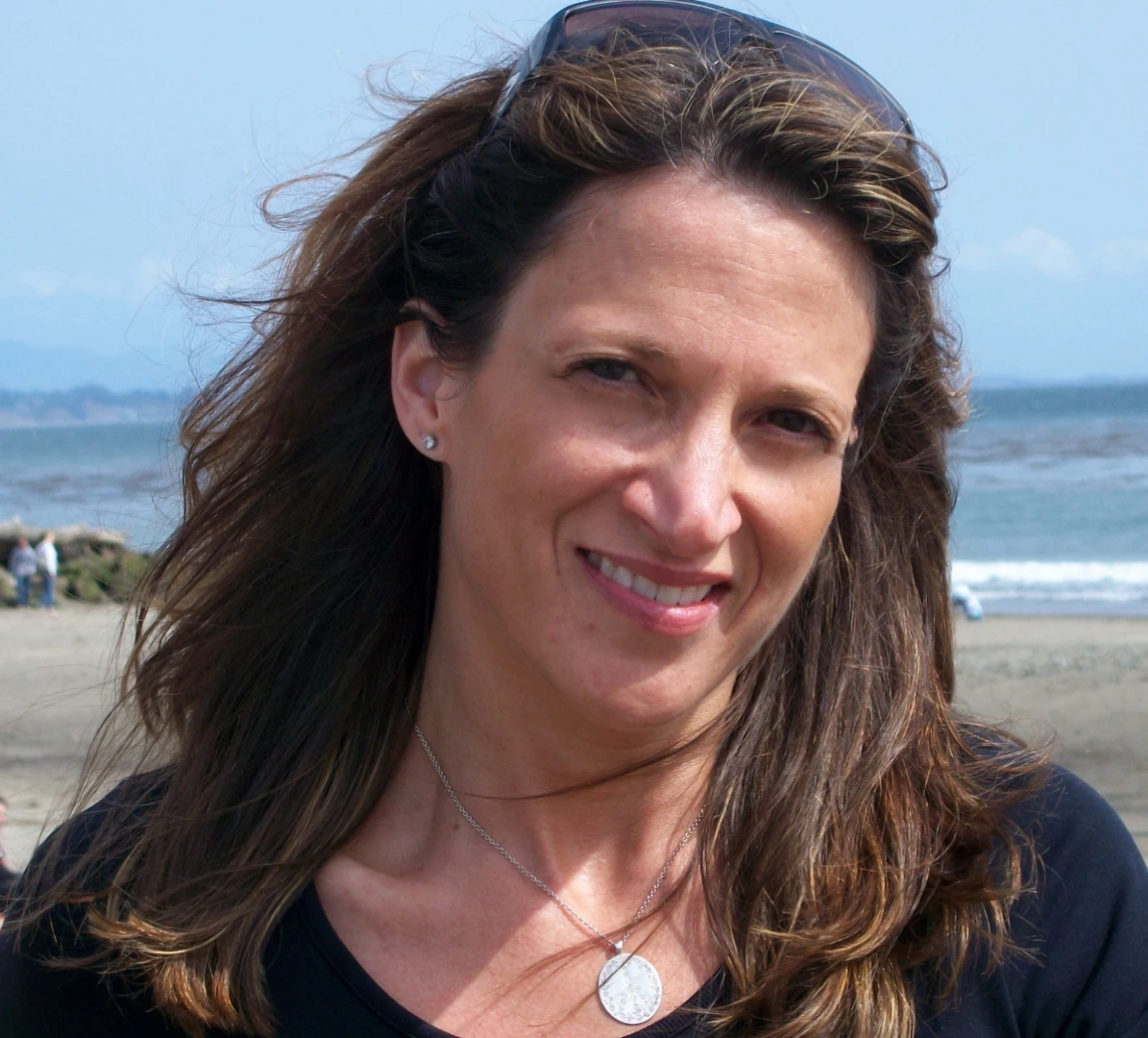New Light on Cancer: Do Changes in the Fascia Play a Role?

There are an estimated 14.5 million people living with cancer in the U.S., with 40% using some form of complementary approach to manage symptoms or improve their quality of life during and after cancer treatment.
Research is pointing to inflammation and connective tissue stiffness as contributing to tumor growth, spreading and metastasis. This raises the question of whether yoga, massage, and other complementary therapies designed to reduce inflammation and stiffness may be beneficial.
Yoga Research: How Yoga Helps Cancer Treatment Symptoms

Yoga, massage, acupuncture, and other alternatives to allopathic medicine are frequently used to reduce symptoms related to cancer treatment, such as pain, fatigue, psychological distress, and insomnia. We are only beginning to learn whether these modalities impact inflammation and stiffness in the fascial network, which has been linked to other cancer-related concerns such as decreased strength, range of motion, and functional mobility.
The fascial network is a body-wide matrix of extracellular connective tissue that integrates the musculoskeletal system, surrounds the body’s organs, and houses blood and lymphatic vasculature. In a recent article in Cancer Research, a group of scientists headed up by renowned fascia researcher Helene Langevin proposed that loss of functional mobility and reduced patient activity may not only contribute to additional tissue stiffness within this network but that stiffness of connective tissue may be linked to tumor growth, spreading and metastasis.
These conclusions are largely derived from imaging research and animal models. Studies using elastography, which maps the elasticity of tissue, and atomic force microscopy, which permits very high-resolution cellular imaging, show that malignant tumors tend to be stiffer than benign masses. This may be due to increased collagen deposits surrounding the tumor. In animal studies, increased collagen deposits were found to promote tumor progression. Although this research is in its infancy, it suggests a relationship between tissue stiffness and cancer cell growth.
Yoga, acupuncture, and massage are designed to stretch fascial tissue and reduce inflammation. This raises the question of whether these therapeutic modalities may enhance conventional cancer treatment by decreasing fascial stiffness and lessening chronic inflammation, which may, in turn, inhibit tumor growth, spreading, or metastasis. This hypothesis is not without controversy. Some researchers question whether applying pressure or force to a tumor or adjacent tissue might dislodge malignant cells and promote their migration.
Additional, high-quality studies will be needed to resolve this dilemma and to assess the direct or indirect linkages between inflammation, fascial stiffness, and cancer progression, as well as the extent to which yoga and other complementary therapies may benefit those living with cancer.
Study with B Grace Bullock, PhD and YogaUOnline – Breathe: Yogic Tools for Happy, Healthy & Fulfilling Relationships.
 B Grace Bullock, Ph.D., E-RYT 500, is a psychologist, research scientist, educator, yoga and mindfulness expert, and author of Mindful Relationships: Seven Skills for Success – Integrating the Science of Mind, Body and Brain. Her mission is to reduce stress, increase health and well-being and improve the quality of relationships. She offers classes, workshops, writing, and research that combine the wisdom of applied neuroscience, psychophysiology, psychology, and contemplative science and practice. Her goal is to empower individuals, groups, leaders, and organizations to reduce chronic stress and increase awareness, attention, compassion, mindfulness, and effective communication to strengthen relationships, release dysfunctional patterns, and unlock new and healthy ways of being. Dr. Bullock is also the Founding Director and Principal Consultant of the International Science & Education Alliance, an organization devoted to exceptional research, program evaluation, assessment design, strategic planning and capacity building to support equity, programmatic diversity and scientific integrity, and promote effective leadership, decision-making and social change. Bullock is a Certified Viniyoga Therapist and Faculty at the Integrated Health Yoga Therapy (IHYT) Training program. She is the former Senior Research Scientist at the Mind & Life Institute and former Editor-in-Chief of the International Journal of Yoga Therapy. For more information, see www.bgracebullock.com.
B Grace Bullock, Ph.D., E-RYT 500, is a psychologist, research scientist, educator, yoga and mindfulness expert, and author of Mindful Relationships: Seven Skills for Success – Integrating the Science of Mind, Body and Brain. Her mission is to reduce stress, increase health and well-being and improve the quality of relationships. She offers classes, workshops, writing, and research that combine the wisdom of applied neuroscience, psychophysiology, psychology, and contemplative science and practice. Her goal is to empower individuals, groups, leaders, and organizations to reduce chronic stress and increase awareness, attention, compassion, mindfulness, and effective communication to strengthen relationships, release dysfunctional patterns, and unlock new and healthy ways of being. Dr. Bullock is also the Founding Director and Principal Consultant of the International Science & Education Alliance, an organization devoted to exceptional research, program evaluation, assessment design, strategic planning and capacity building to support equity, programmatic diversity and scientific integrity, and promote effective leadership, decision-making and social change. Bullock is a Certified Viniyoga Therapist and Faculty at the Integrated Health Yoga Therapy (IHYT) Training program. She is the former Senior Research Scientist at the Mind & Life Institute and former Editor-in-Chief of the International Journal of Yoga Therapy. For more information, see www.bgracebullock.com.
Sources
Langevin, H.M., Keely, P., Mao, J., Hodge, L.M., Schleip, R. et al., (2016). Connecting (T)issues: How research in fascia biology can impact integrative oncology. Cancer Research, 76 (21), 6159-6162. doi: 10.1158/0008-5472.CAN-16-0753


